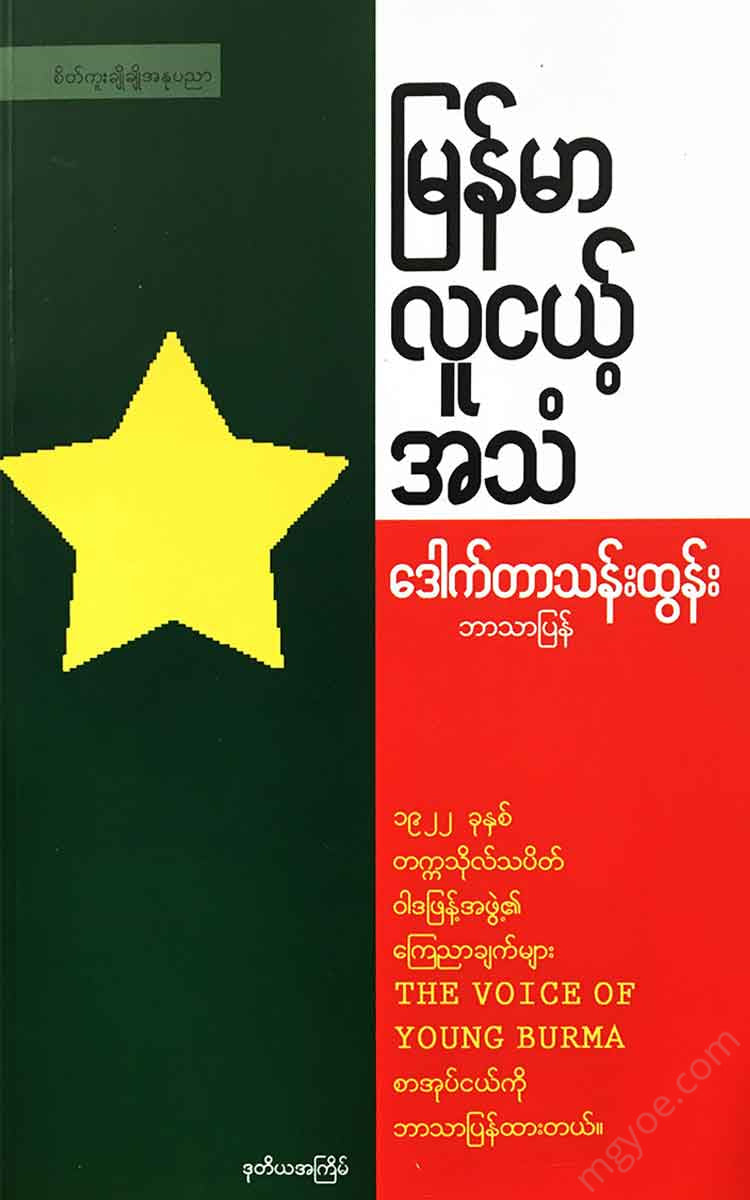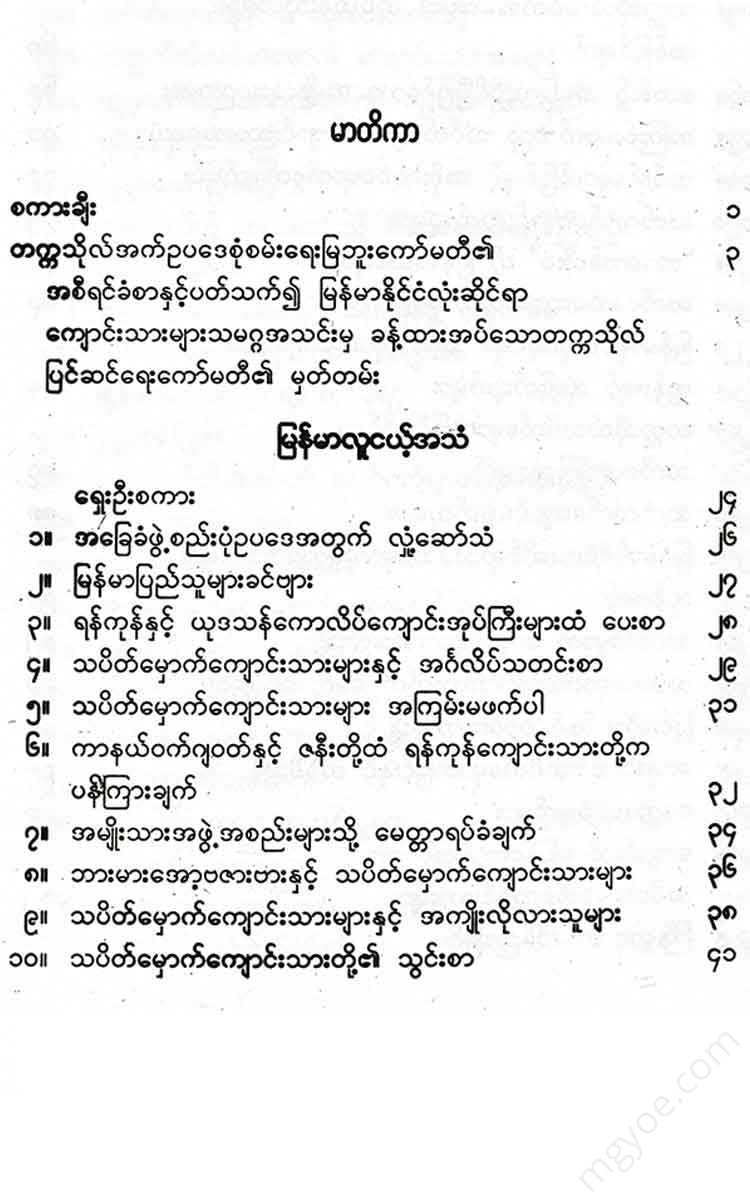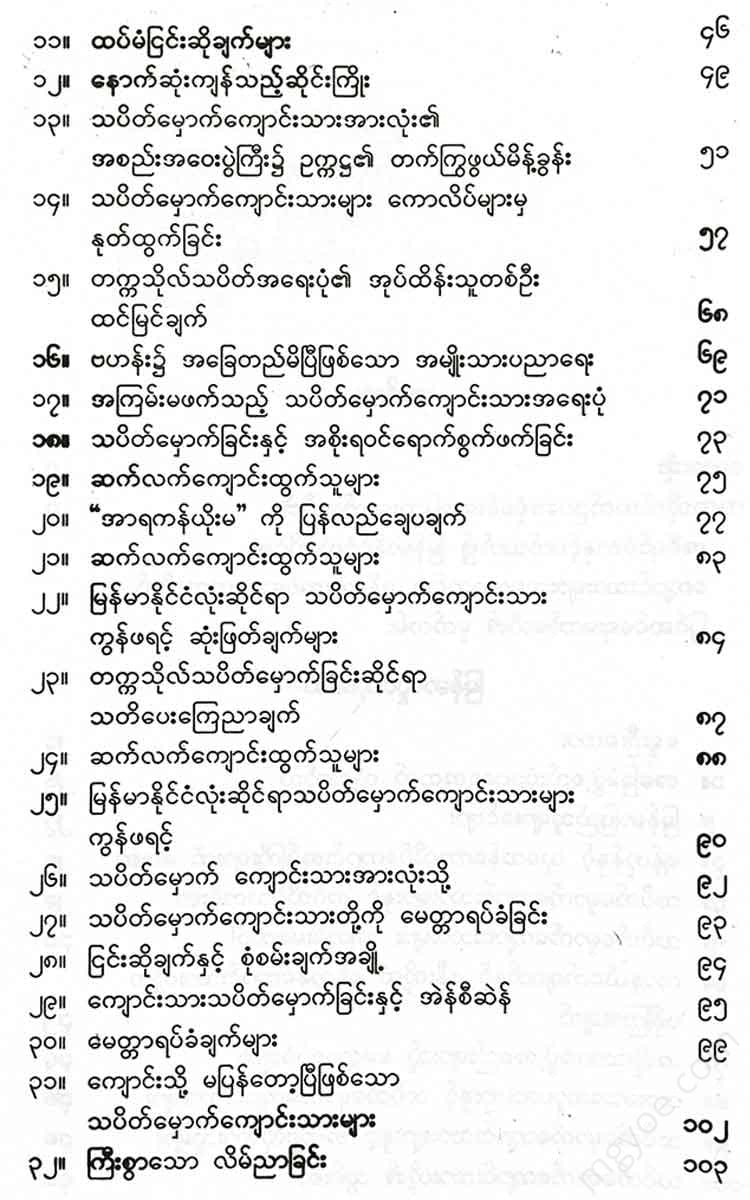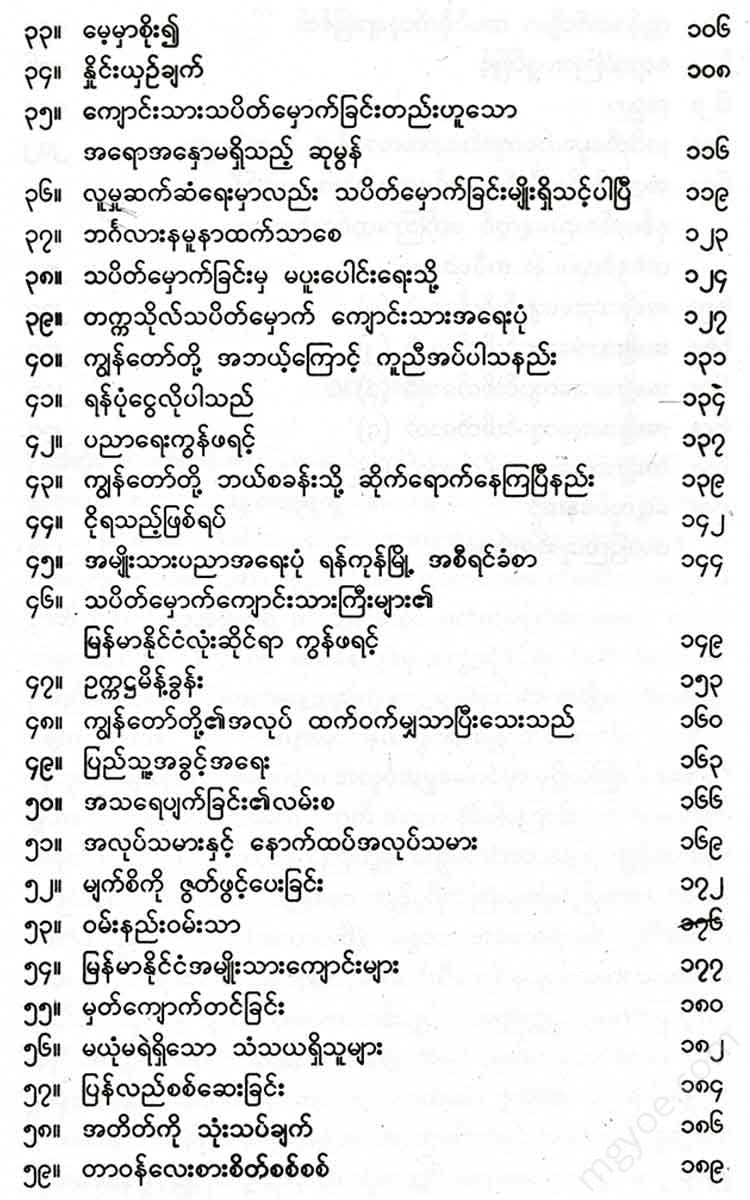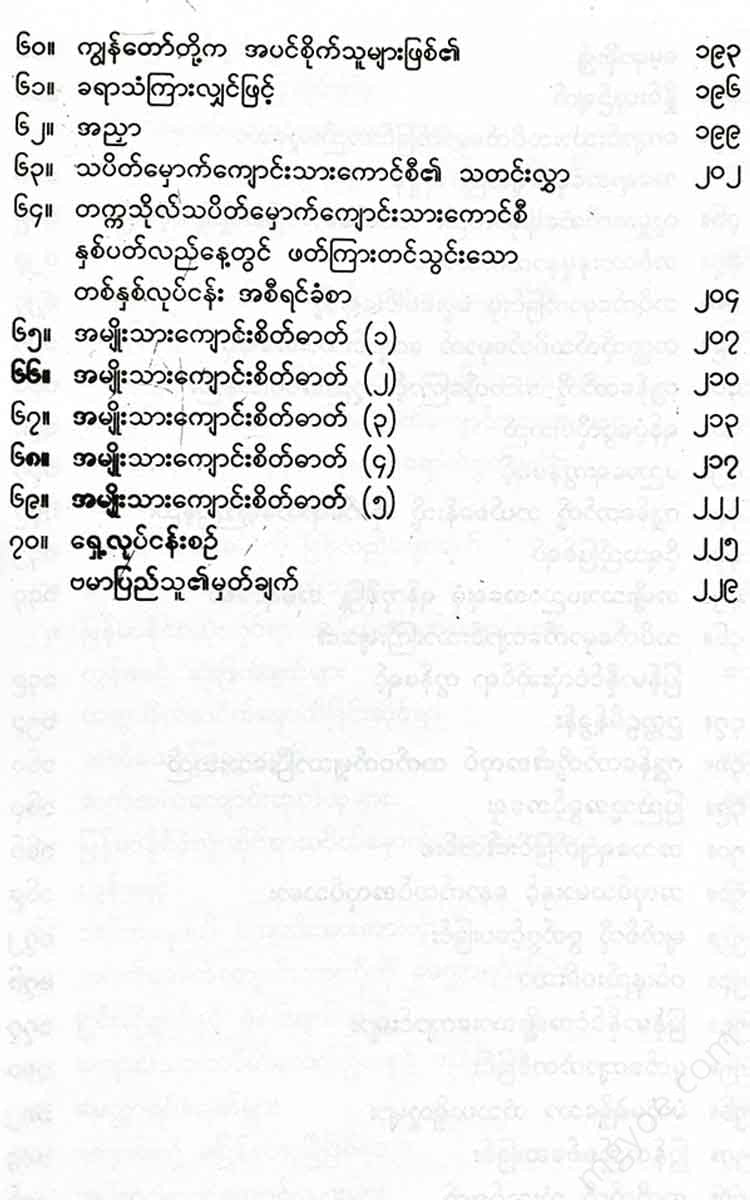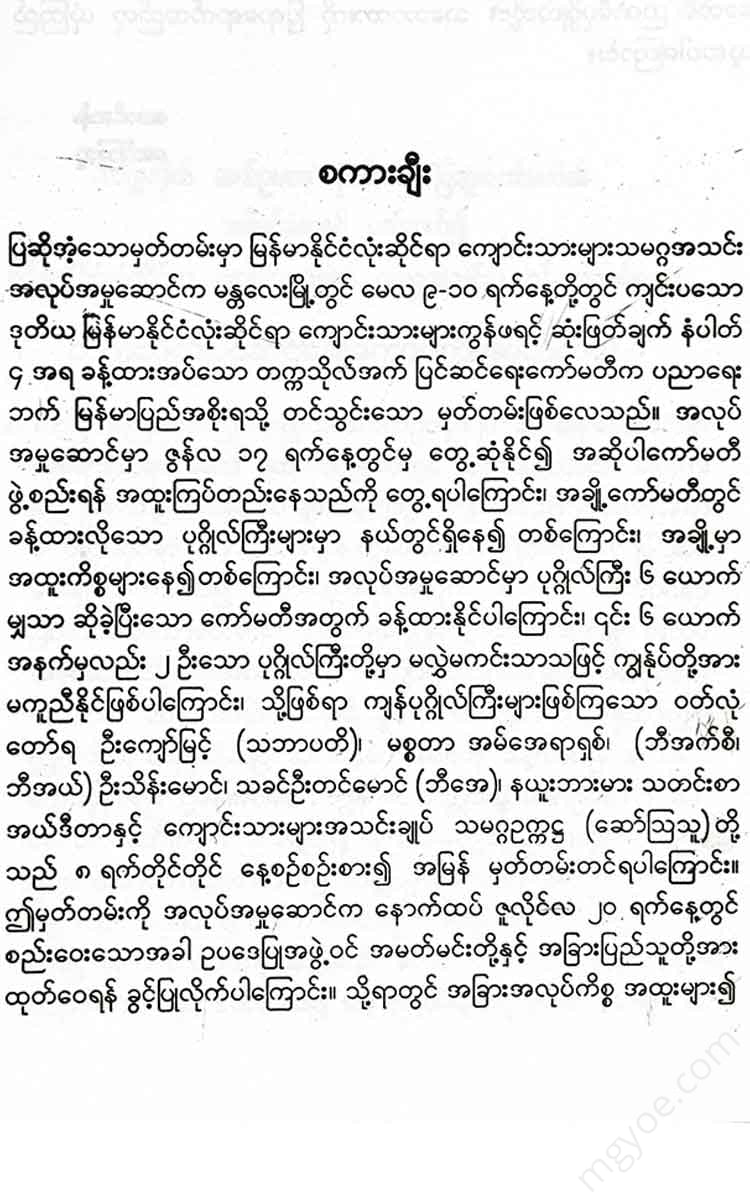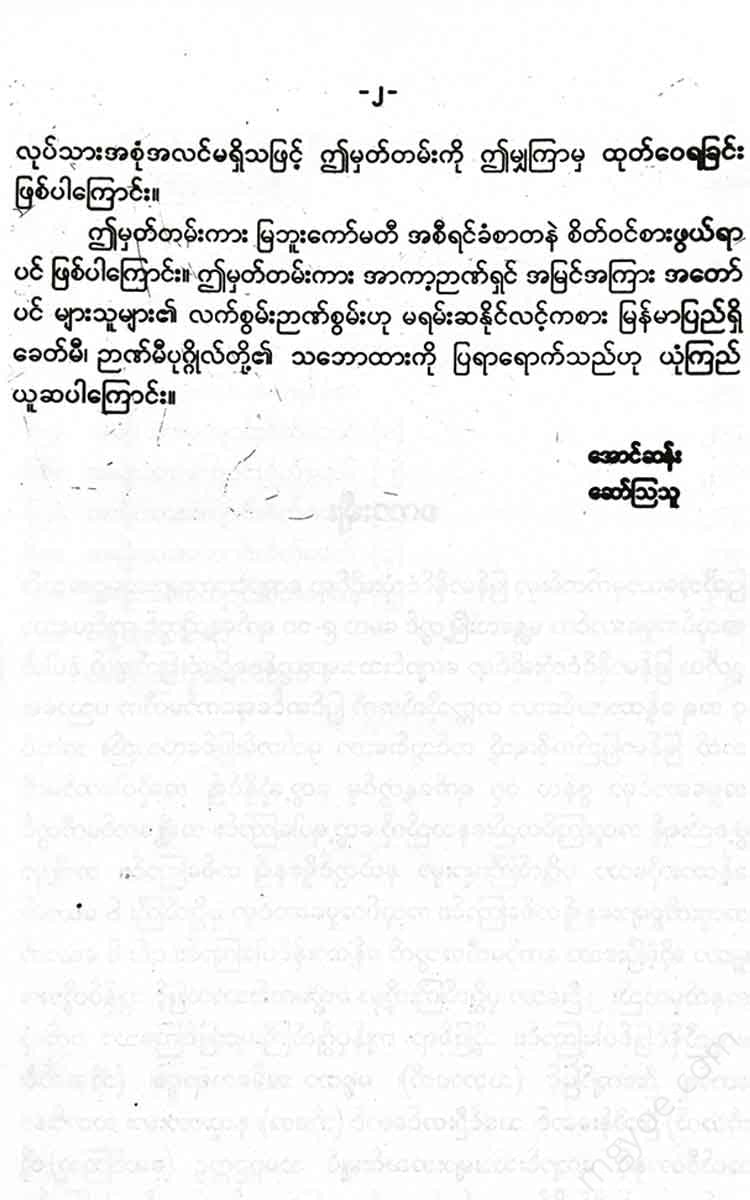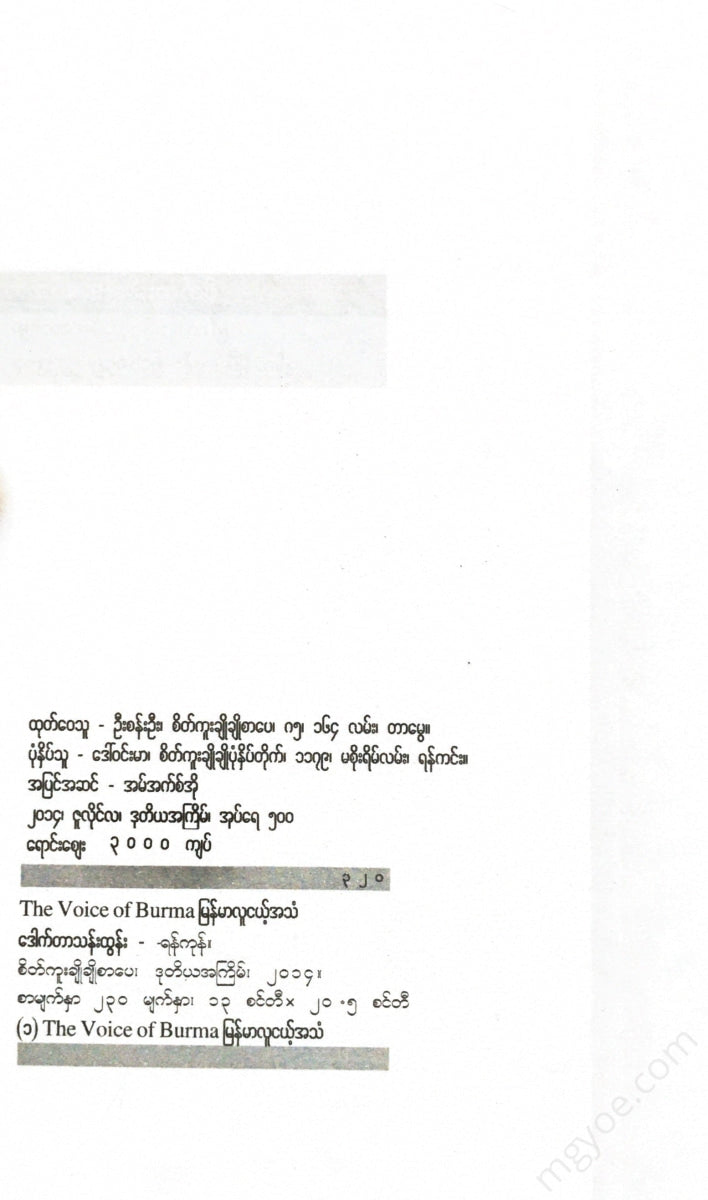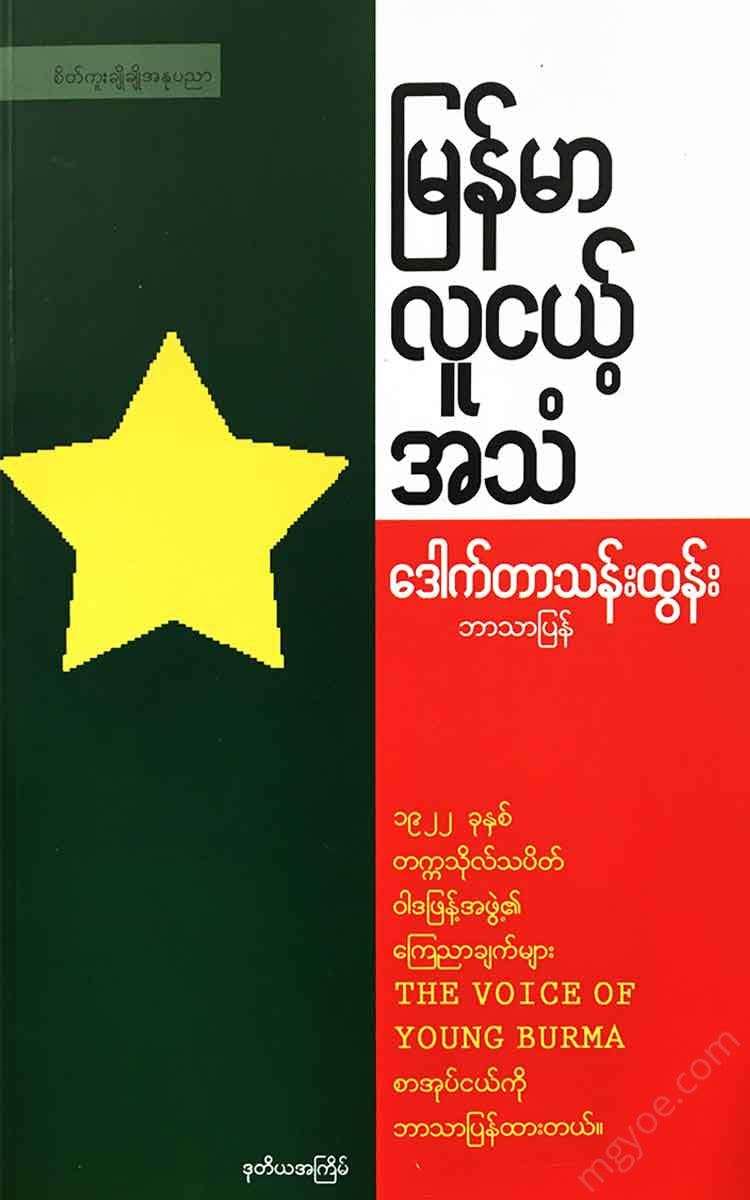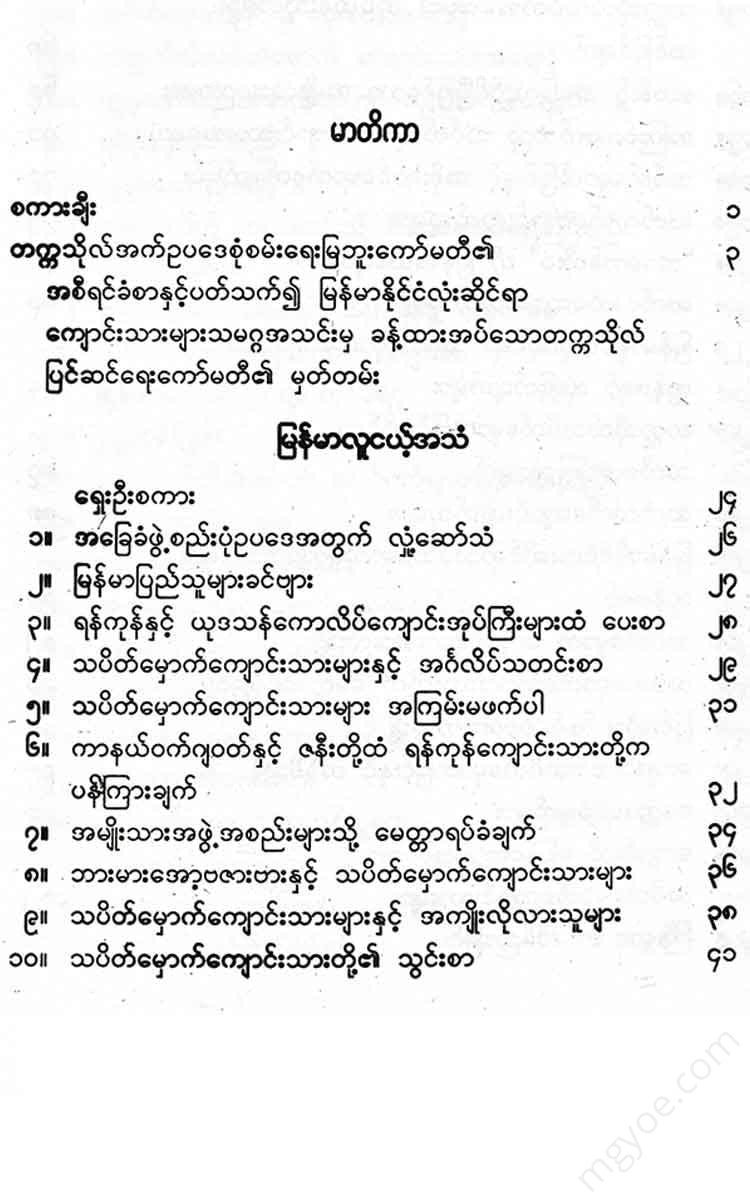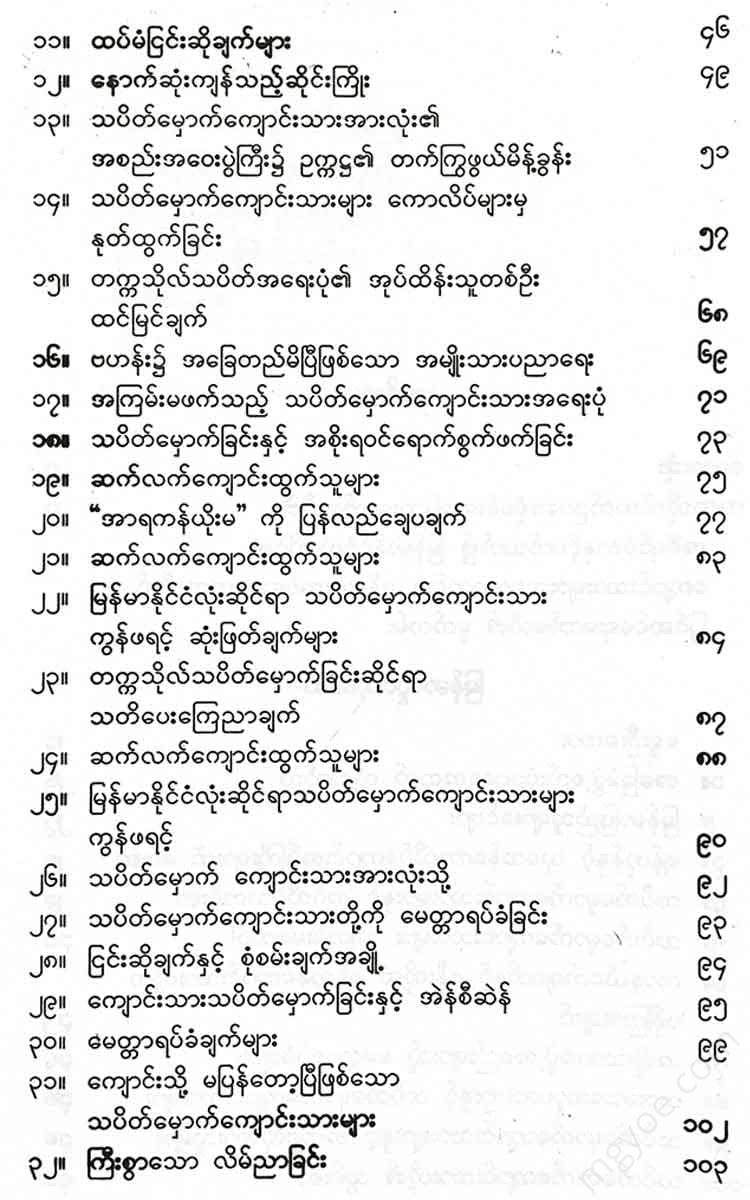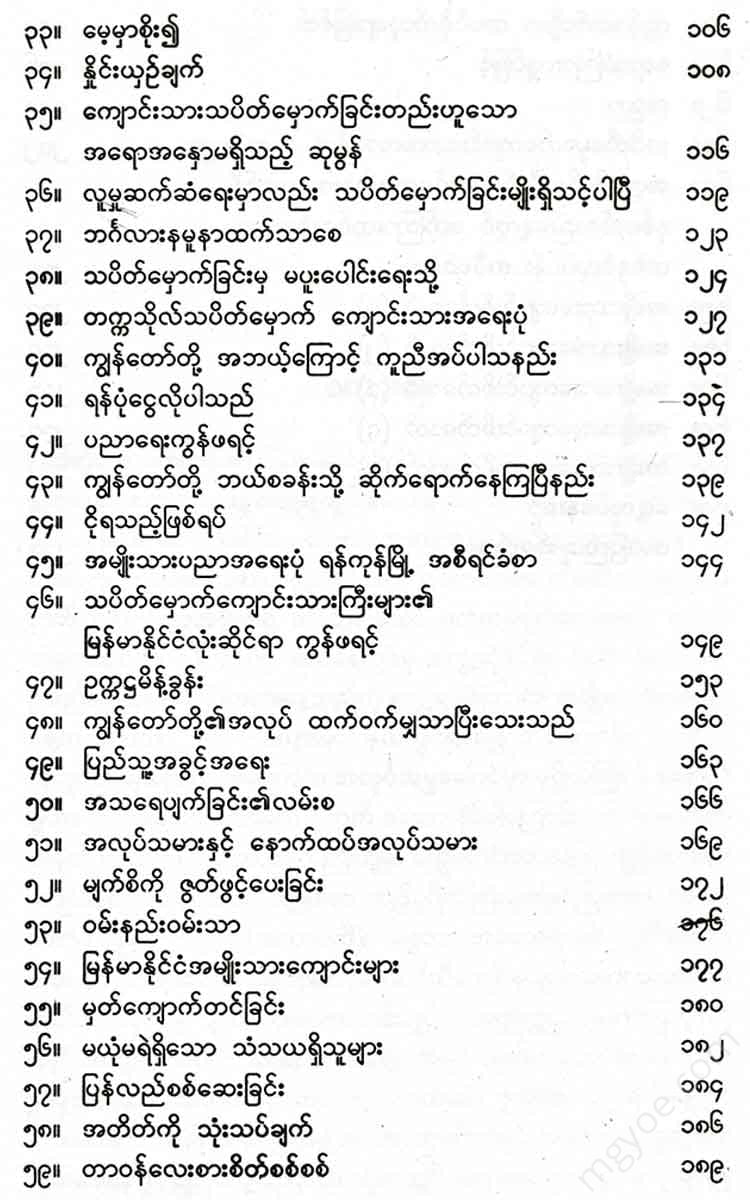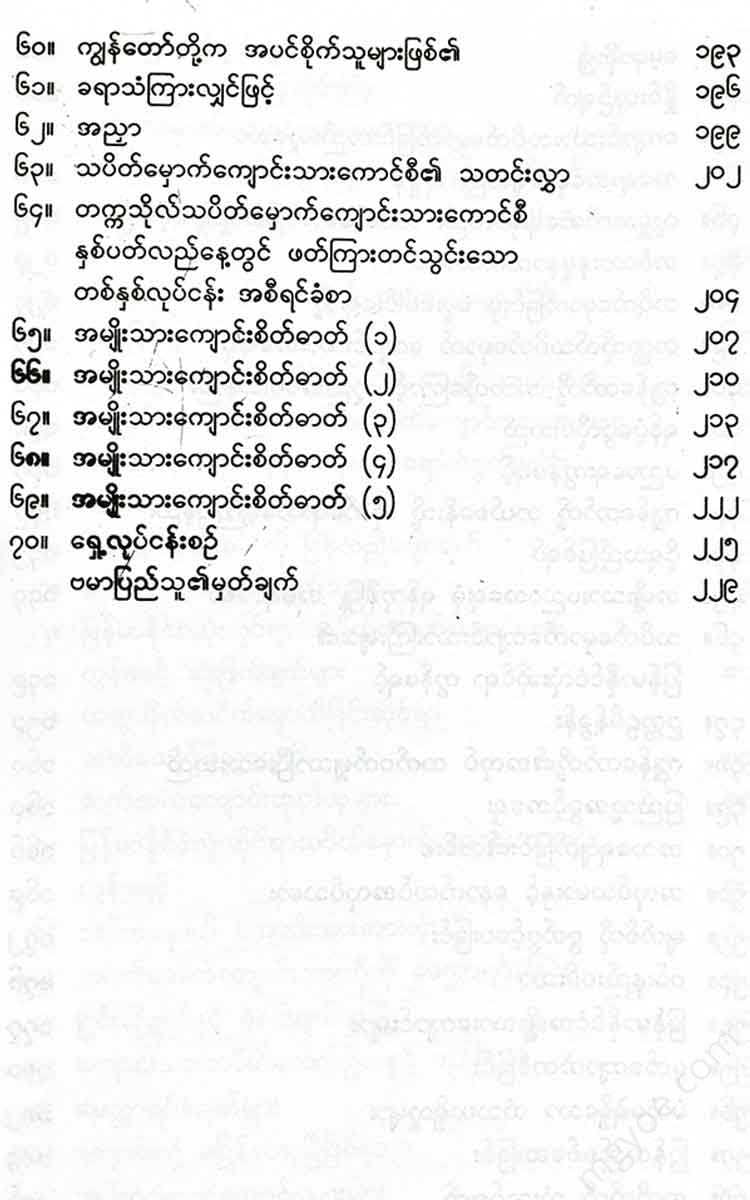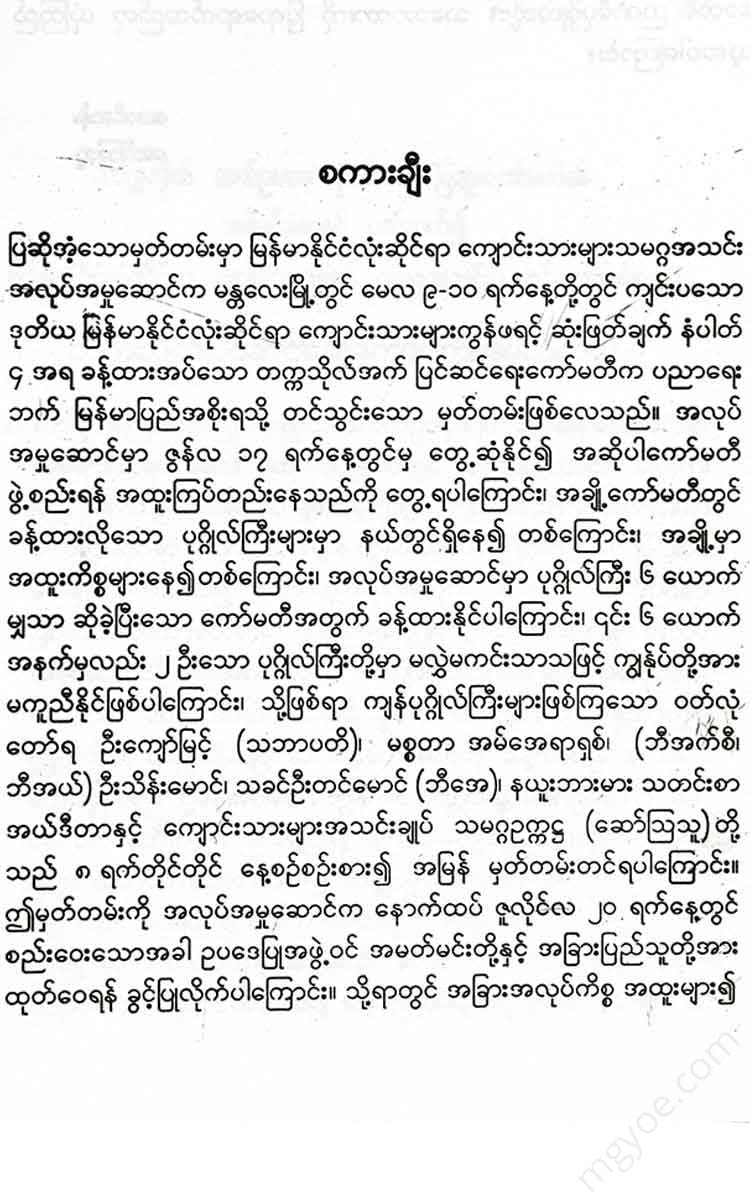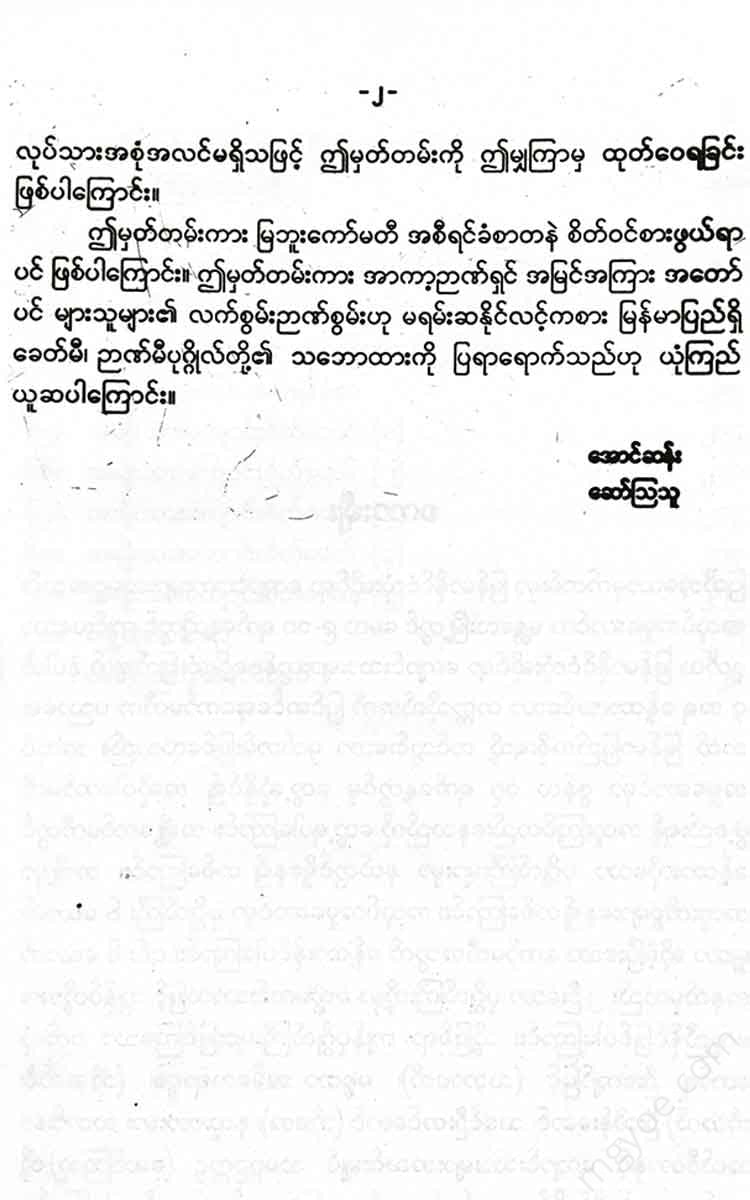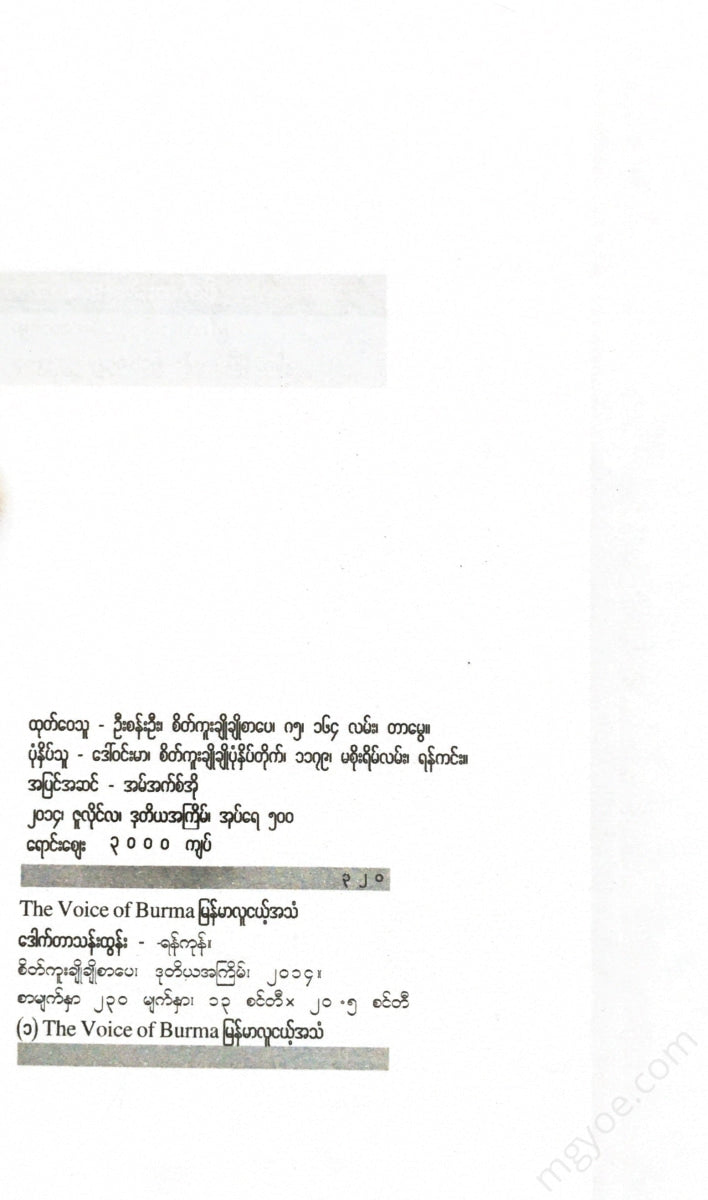စိတ်ကူးချိုချိုစာပေ
Dr. Than Tun - Myanmar Youth Voice
Dr. Than Tun - Myanmar Youth Voice
Couldn't load pickup availability
1. The report of the University Act Amendment Committee headed by Sir Myabu was released in the first week of May. The Second All-Burma Students Conference held in Mandalay on May 9th and 10th entrusted the formation of a University Act Amendment Committee to work on the reform of this university to the Executive Committee of this Student Union. Since the Executive Committee of the Student Union was closed, it was only in mid-June that we were able to meet to appoint this University Amendment Committee. Our University Act Amendment Committee, which was appointed, met and consulted soon after its appointment. The University Council regarding the Myabu Committee will also be convened in July, and we have asked for proposals for that Council to be submitted by June 30th. The government has also announced that it will accept proposals regarding the Myabu Committee until June 30th. Therefore, our Committee has to sit and deliberate every day. We cannot examine the details of the Myabu Committee report, but we are all of the same mind on the main principles. All we have to think about is what everyone agrees on.
2. We find that we disagree with the Myabu Committee on many important points regarding the report. However, we do not need to criticize every minor point in the Myabu Committee report, but only consider the important recommendations.
3. The university students are particularly dissatisfied with the Myabu Committee report. We believe that if our opinions, especially those regarding the need to include more university officials and non-government officials in the university council and the two-way communication between universities and colleges, are incorporated into the new University Act, it will be acceptable to the country and the students.
4. It is regrettable that the paragraphs and recommendations in the Myabu Committee report are not numbered, making it difficult to reference.
5. We have long considered the question of whether the University of Yangon should be a university of letters or a university of boarding and lodging. For us, we do not care about the name, and any university is always subject to the conditions of the country in which it is located. However, in considering the new management of the university, we cannot ignore its current situation. If we examine carefully, we will find that the University of Yangon is now neither a university nor a boarding and lodging school, but that students are taught entirely in colleges. Occasionally, some colleges offer joint courses to students for the sake of economy and convenience. In addition, many students are home-schooled. However, as I have said, we do not care about the name, and we will only consider how to improve the university in the present situation. -
6. In general, we want Yangon University to remain as it is now. We agree with the Myabu Committee’s statement that capable students want to live and eat in the school. We also agree with the suggestion that more scholarships should be given to poor and deserving students for those who cannot afford it and that the Department of Education should provide support to deserving teachers. We also urge that funds be raised to help other poor and deserving students. However, even if this is done, it will not be enough for all deserving poor students.
7. Therefore, we believe that the only way to provide all poor students with access to university education is to allow other students to sit for all the regular university examinations after the last university examination and after the end of the period of study for students in colleges. Therefore, in accordance with the above-mentioned method and the rules that will be laid down: 1. Every student admitted to the university shall be allowed to sit for the undergraduate examination free of charge, and shall be allowed to sit for the degree examination after the prescribed time.
2. Anyone who has passed the pre-university examination and obtained a license from a government medical school, government vocational school, or BOC college, after working as a doctor or mechanical engineer for 3 years, will be allowed to take the MBBS examination and the BSc in engineering examination (If such students who have passed the MBBS are not recognized by the British Medical Council, please inquire as to how they will be recognized).
8. In addition to the above rules, the following rules may be set for all or some of the free students as desired.
1. To require students to submit a certificate of completion of the practical work required for the degree or diploma in a recognized laboratory or to spend half the time at the university to teach the practical work as compared to other students.
2. A registration list should be kept for non-college students who are taking the exam on their own and their names should be registered three months before the exam.
If such rules are in place, we believe that our above ideas for free education will not be possible.
9. We also urge the removal of Regulation No. 9, Section 6 and similar provisions in the Universities Act, stating that any college student who has completed the required course of study in due time, whether he has completed 2 years, 1 year or has not taken the examination at all, should be allowed to sit for the examination. In this regard, we do not consider the recommendation of the Committee that students who have completed one year should be allowed to sit for the examination. It is not reasonable to assume that a student should have to take another year of the examination in order to sit for the examination as long as he has completed the required course of study in due time.
10. There are two reasons why students who take free exams should not be allowed. The first reason is that such a right would reduce the quality of university education. We believe that this opinion is completely wrong. The university can set its own grades as it wishes. Anyone who takes free exams or takes them as a college student should be able to get that grade. Therefore, it is very clear that free exams that meet such grades should be awarded a degree. As long as the grades of such university exams are high, allowing free exams will not in any way reduce the quality and cheapen university degrees. If university teachers teach free exams by correspondence or in their free time, they will be relieved of their university duties. If such teaching is specifically prohibited, it is difficult to imagine how the quality of university education would be diminished by allowing those who take free tests. We would like to ask those who think this to provide a clear and concise explanation without further ado.
11. We are now advising that many students will not come to college. This is because the large and luxurious buildings, the entertainment, the games, the living and the learning events, all attract every student and their parents, so it is inevitable that everyone who can afford it will come to college. In this case, the university does not see any loss in allowing those who are free to do so.
12. Besides this, allowing such independent candidates would be likely to encourage many people who want to advance in the government or other sectors, who have jobs and support, to pursue higher education. Only those who cannot afford such money and want to pursue higher education would be independent candidates. If the university entrance exam is high, the independent candidates who pass the exam are more qualified than the average person. In considering these suggestions, it should be noted that there is only one University in Myanmar, Yangon.
13. As mentioned above, students who can afford to live in a prestigious university will be boarding students. In fact, many students who have parents in Yangon would like to live in boarding schools. But what about students who do not want to? While students living with their parents in Yangon are accepted as homestay students, we have seen students living with relatives being forced to live in boarding schools from time to time. We believe that living in the city is cheaper and the food and drink is no worse than in colleges. Therefore, students living with their parents in Yangon, as well as all students studying for BA and B.Sc. degrees, are entitled to live in the city if their parents or guardians give them written notice.
14. We consider that the University is entitled to elect its Chancellor, either from among its own members or from among those who are active in the foreign and educational spheres, and that, as the University is a self-governing institution, it is particularly appropriate for it to be able to appoint as its chief patron such person as it wishes, and that the Chancellor so elected will be more closely acquainted with and interested in the affairs of the University than the Governor. Furthermore, if at any time the University and the present Government are in dispute, the Chancellor so elected will speak for the University. If the Governor is the Chancellor, he will have reason to remain neutral and on the side of the present Government.
15. The Myabu Committee discussed the issue of whether the University Council has any authority over the relationship between universities and colleges in reports 13 and 14 and then 26 to 28. In this discussion, the Myabu Committee stated that the statement that the University Council has no authority is baseless, and by supporting this statement, it is clear that the members of the Myabu Committee do not know the internal affairs of the university well. The fact that the University Council has no authority is not just an opinion, but a real fact. According to one conclusion of the current Vice-Chancellor, these elders cannot ask questions at the meetings of the University Council. According to another conclusion, the decisions of the University Council are only “recommendations” to the Senate and the college administrations, and are not responsible for the Senate and the college administrations in any way.
